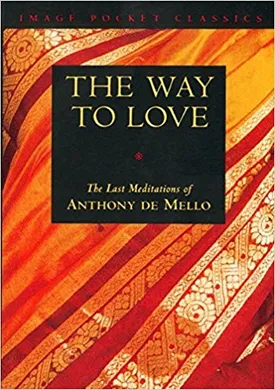Anthony de Mello
Anthony de Mello was an Indian spiritual teacher and writer whose uniqueness lay in his ability to convey traditional Christian spiritual concepts in a way that resonated with a contemporary audience. He believed in the spiritual existence of the world but often taught his lessons using stories from a variety of different religions and beliefs. The primary theme of much of de Mello’s work is that of transcending the ego in order to see the spiritual world.
Born in 1931 in Bombay, India, de Mello was a Jesuit for the majority of his life and was heavily influenced by Ignatian spirituality, a form of Christian spirituality that emphasizes personal transformation and growth in communion with God. He was an adept learner who taught himself several different languages, as well as psychology and psychiatry, which allowed him to bring multiple perspectives to his work. In 1973, de Mello went to the US to study psychology and psychotherapy and found himself drawn to Sufism, a form of Islamic mysticism.
De Mello’s most famous works include ‘Sadhana: A Way to God’ (1978), ‘Wake Up to Life’ (1988) and ‘The Way To Love’ (1992). In these works, de Mello emphasizes the principle of recognizing and transcending the ego in order to connect to the spiritual world. He emphasizes that humans, in their day to day lives, get too caught up in the ego and what it desires, thereby losing sight of their true selves and missing out on meaningful connections. He encourages readers to step out of the ego-defined life in order to uncover a deeper spiritual experience.
De Mello also warned against the tendency to view spirituality as one’s own personal property. In his book ‘Awareness’ (1982), he exhorts readers to recognize the interconnectedness of all things and to avoid clinging to any single viewpoint. He warns against becoming too enmeshed in any single spiritual system and encourages readers to explore a multitude of spiritual paths. In this way, de Mello emphasizes that the spiritual journey is a lifelong journey that should not be confined to any single belief system.
De Mello’s approach to spirituality was robust yet accessible to non-religious readers. He did not attempt to evangelize but rather encouraged readers to explore their own spiritual inclinations and to open their minds to new perspectives. He maintained that the spiritual journey was not a dogmatic one, but rather an exploration of the many different paths of the Divine. By privileging the individual’s own spiritual path and accepting the possibility of many divine solutions, he encouraged individuals to truly engage with their spiritual nature.
The unique way in which de Mello presented spiritual truths and his willingness to explore unfamiliar traditions made his teaching relevant to people from a variety of religious and cultural backgrounds. He was also a vocal critic of religious fundamentalism and often used his work to condemn the oppression and repression of marginalized groups, both within religious traditions and in society at large.
Though de Mello passed away in 1987, his legacy lives on. His teachings have been adopted by both religious and non-religious audiences, and his works remain widely read and discussed. Those who follow his teachings often describe awareness of the divine and spiritual peace and growth in their lives, as de Mello encourages individuals to look within themselves for a connection to the divine that exists in all of us.


